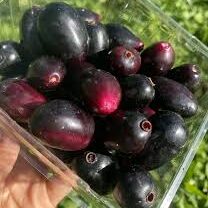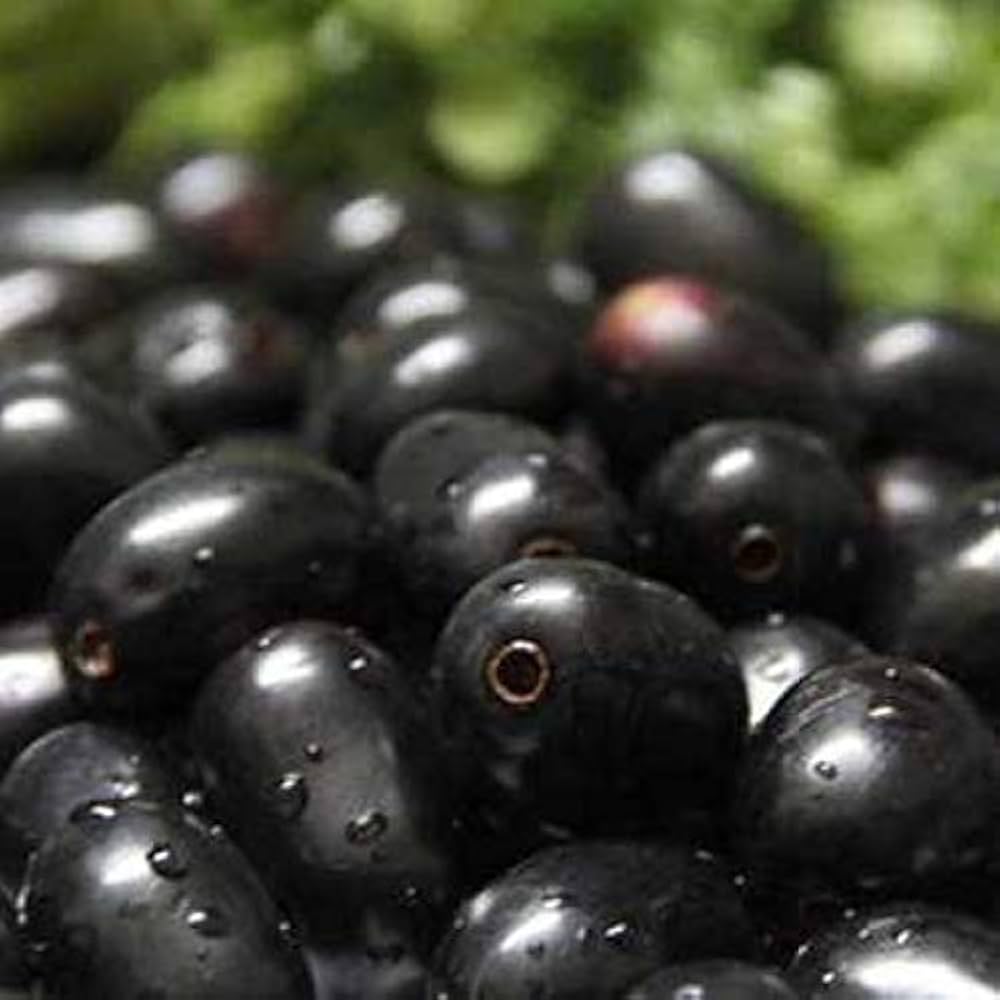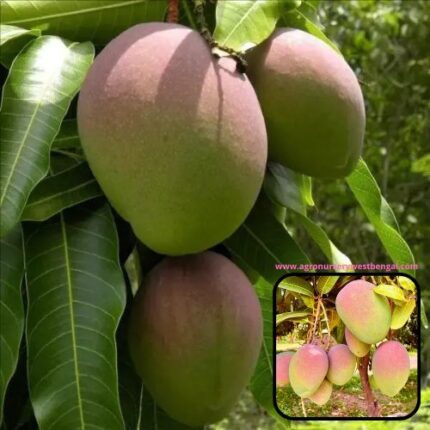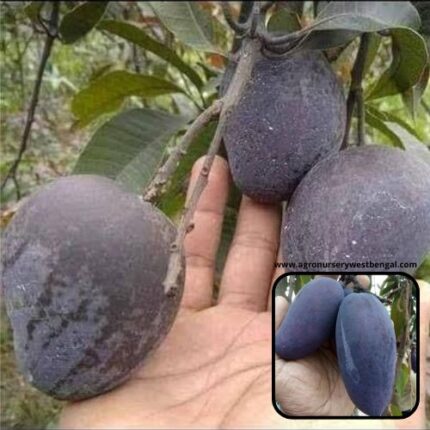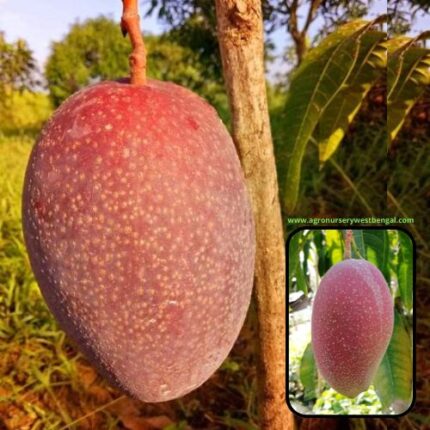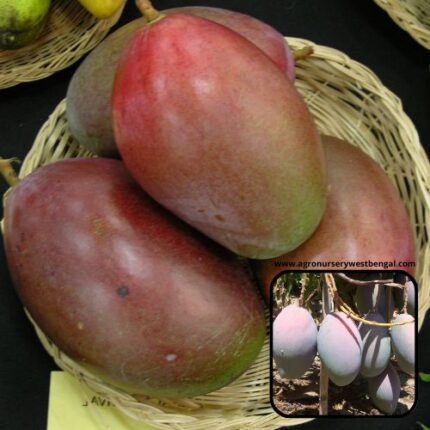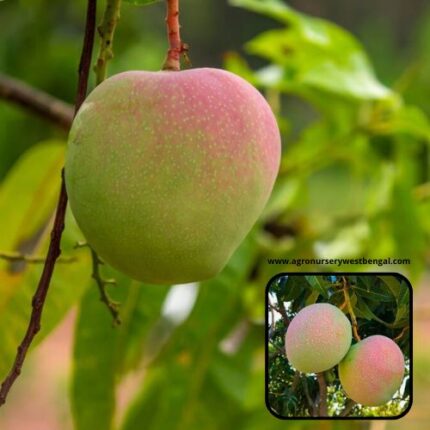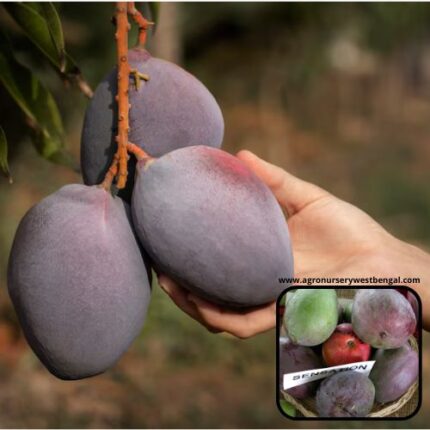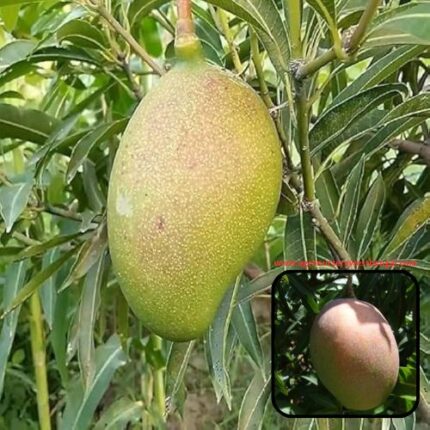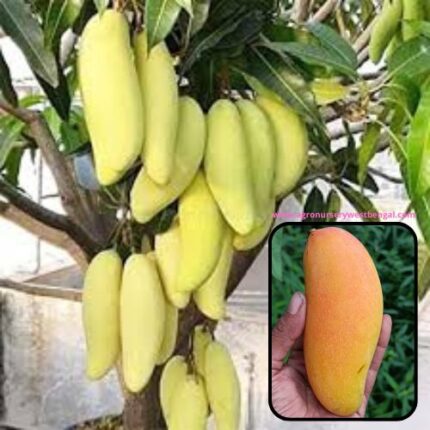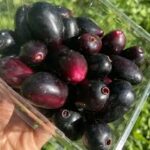
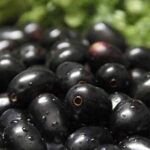
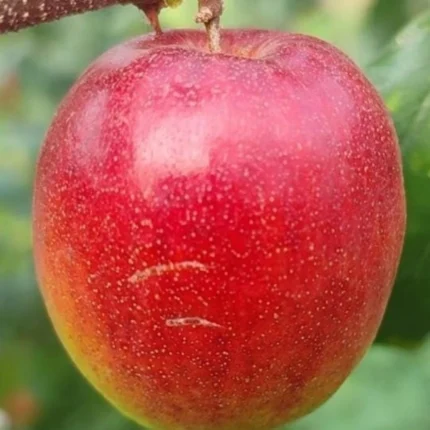
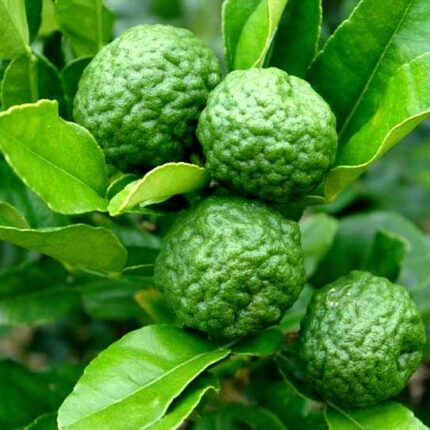
Thai King Jamun fruit plants
₹1,999 Original price was: ₹1,999.₹699Current price is: ₹699.
“Thai King Jamun” is a highly prized and increasingly popular cultivar of the Jamun or Java Plum (Syzygium cumini), specifically originating from Thailand. It’s particularly notable for its exceptionally large fruit size and often superior taste compared to indigenous varieties.
Here’s a detailed description of the Thai King Jamun fruit:
1. Botanical Classification:
- Scientific Name: Syzygium cumini (specifically the ‘Thai King’ or sometimes ‘KG-10’ cultivar).
- Family: Myrtaceae (Myrtle family).
2. The Plant (Tree):
- Growth Habit: The Thai King Jamun grows on a medium to large-sized evergreen tree. It’s known for its robust growth, attractive glossy, dark green foliage that provides excellent shade, and its high-yielding nature.
- Early Fruiting: Grafted plants of Thai King Jamun are often prized because they can start bearing fruit relatively early, sometimes within 1-2 years of planting.
- Adaptability: Thrives in tropical and subtropical climates, making it well-suited for cultivation in many parts of India, including West Bengal. It prefers well-drained, fertile soil.
3. The Fruit:
- Appearance:
- Size: This is the most distinguishing feature of the ‘Thai King’ variety. The fruits are exceptionally large, significantly bigger than typical local Jamun varieties. Reports indicate individual fruits can weigh around 50 grams or even more, with some sources claiming “10 fruits weigh 2 kg,” suggesting very large fruit sizes (200g per fruit). This “jumbo size” makes it highly attractive.
- Shape: Typically oblong or ovoid in shape, similar to other Jamuns, but simply on a much larger scale.
- Skin: The skin is thin, smooth, glossy, and transitions from green to a deep purple or almost black when fully ripe. The dark, rich color is characteristic of the best Jamun.
- Flesh (Pulp): The internal flesh is juicy, firm, and can range from light pink to purple. It’s succulent and less fibrous than some traditional Jamun types.
- Seeds: Contains a single, relatively large, hard, inedible seed. However, some advanced Thai King cultivars are marketed as “seedless” or “low-seed,” which is a highly desirable trait that enhances the eating experience.
- Taste and Flavor Profile:
- Sweetness: Thai King Jamun is highly regarded for its superior sweetness. It’s often described as being rich in flavor and significantly sweeter than many native varieties, which can be quite astringent.
- Sweet-Tangy Balance: While sweet, it still retains the characteristic mildly tangy and slightly astringent undertones that define Jamun, creating a balanced and refreshing taste. The astringency is generally less pronounced than in wild or traditional varieties.
- Juiciness: It’s a very juicy fruit, providing a refreshing burst of flavor with every bite.
- Flavor Notes: The overall flavor is described as a unique blend, sometimes compared to plum or blackberry, but with the distinct Jamun essence.
- Aroma: A ripe Thai King Jamun has a pleasant, sweet, and characteristic Jamun aroma.
4. Ripeness:
- A fully ripe Thai King Jamun will be a uniform deep purple to almost black color, feel slightly soft to the touch, and will likely exude a strong, sweet aroma.
5. Culinary Uses:
- Fresh Eating: Due to its large size and superior taste, it’s primarily enjoyed fresh, eaten directly. As with all Jamuns, it will stain your lips, tongue, and fingers purple!
- Juices and Beverages: Its abundant juice and balanced flavor make it excellent for refreshing juices, smoothies, mocktails, and sherbets.
- Desserts: Can be incorporated into jams, jellies, ice creams, sorbets, and other sweet preparations.
- Traditional Preparations: Like other Jamuns, it can be used to make pickles, chutneys, and vinegar.
6. Nutritional Value and Health Benefits: Thai King Jamun shares the significant health benefits of other Jamun varieties, making it a highly nutritious fruit:
- Rich in Antioxidants: Abundant in anthocyanins (which give it its deep color), flavonoids, polyphenols, and Vitamin C, all powerful antioxidants that combat oxidative stress and inflammation.
- Excellent Source of Vitamin C: Boosts the immune system, promotes healthy skin, and aids in iron absorption.
- High in Dietary Fiber: Aids digestion, regulates bowel movements, and can help prevent constipation.
- Minerals: Contains important minerals like iron (beneficial for hemoglobin and preventing anemia), potassium (for blood pressure regulation), calcium, phosphorus, and magnesium.
- Blood Sugar Management: Jamun, including the Thai King variety, is traditionally consumed and studied for its potential to help manage blood sugar levels, making it beneficial for individuals with diabetes.
- Digestive Health: Its astringent properties are believed to aid in soothing digestive issues.
- Heart Health: Antioxidants and potassium contribute to cardiovascular well-being.
In summary, the Thai King Jamun is a highly desirable and premium cultivar of Jamun, distinguished by its exceptionally large size, deep purple-black skin, juicy and firm flesh, and a notably sweet yet well-balanced taste with reduced astringency. Its high yield and enhanced eating quality make it a prized fruit in tropical and subtropical regions.

